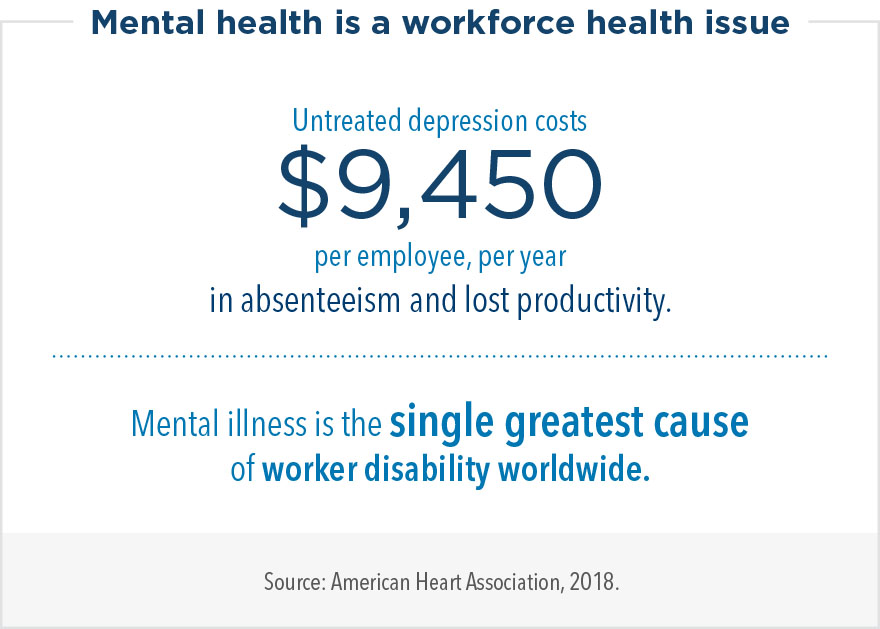Mental Health in the Workplace
I remember when I was young and in school, my mom granted me two “mental health” days a year.
On these two days, I would let her know that I was feeling down and wanted to stay home and she would write me an excuse. I have been struggling with mental illness for as long as I can remember. I used to feel ashamed for having therapy appointments because of the stigma that surrounded mental illness. The stigma is certainly changing, but some still consider discussing mental health in the workplace taboo. The thing is; it shouldn’t be.
Mental health should be treated as openly and seriously as physical health.
If your friend was home sick with the flu, would you ask them, “Have you tried not having the flu?” Of course not! Then why would you ask, “Have you tried not being depressed?” to someone who is suffering from depression? In both instances, the individual cannot help that they are sick, but they can seek treatment. And most importantly, they should.
Nearly 1 in 5 US adults experience some form of mental illness every year and anxiety and depression are among the most common conditions.
With mental illness being so common, it should not be a topic that employers (or anyone) ignore. Unfortunately, the stigma surrounding mental illness is the main deterrent to getting help. Women are more likely to seek treatment and help than men as the stigma against men is more prominent. 62% of millennials say they’re comfortable discussing their mental issues, which is much higher than older generations. This will help with the stigma associated with mental illness.
Mental Health conditions are covered under the Americans with Disabilities Act, meaning your employers must make reasonable accommodations for workers (within reason of course) as long as an employee is willing to divulge what it is that they need.
You don’t have to go into detail about your illness, but you have to be open enough to tell your employer what sort of accommodation you need. Many companies also have some sort of EAP program, which is an Employee Assistance Program. Mental health and physical health are intertwined. Poor physical health can negatively impact your mental health and poor mental health can negatively affect physical health. Use the resources offered to you by your company or seek help on your own.
How you address employee’s Mental Health will impact your organization’s economic recovery post Covid-19.
The widespread impact of the pandemic has put a spotlight on the importance of caring for your mental health. In addition to considering its effects, HR and leadership among businesses should also take into account other traumatic current events and intentionally create programs and policies that support each and every employee in ways they need to be supported. Demonstrating how you value your employees by building a company culture that prioritizes health and wellness is the right thing to do, and it’s a smart business decision.
As Don Mordecai, MD writes in this article, “The mental health of your workforce and your company’s bottom line are inextricably linked.”
